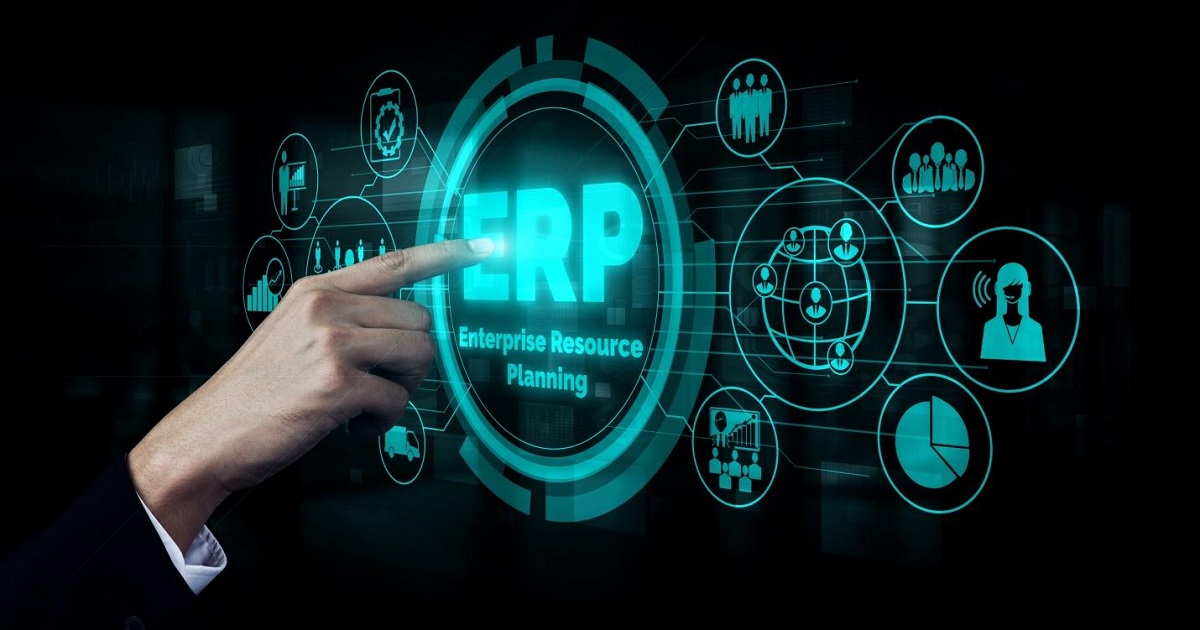Digitalization has changed the way businesses are operated. It simplified most operations, helping companies achieve greater success and efficiency. One such intelligent technology is enterprise resource planning systems. Enterprise resource planning or ERP software is a popular business management solution for all businesses.
At first, ERP systems were used exclusively by large organisations, but they lacked an integrated system to connect all data into one place. Each department had its ERP system, which again had issues with data accessibility. Plus, ERP systems were expensive during those times. Only now you have options like cloud ERP systems and SaaS ERP systems, and both are cost-effective solutions.
ERP emerged in the 1960s, but Gartner coined the term enterprise resource planning in the 1990s. Earlier ERP systems had complexities such as paper works and permit issues. Data transfer from one department to another was a hassle. Security was the biggest challenge in those times.
So over the years, ERP software has evolved a lot, and now we have a centralised system where all the data can be accessible in a single place that all authorised users can approach.
ERP system is a broad term. It helps businesses with day-to-day tasks increasing operational efficiency. It eases core functions like distribution, supply chain management, finance and accounting, and inventory management.
Cloud ERP System
This ERP system is the most cost-effective solution for all businesses. Businesses can use this software in the cloud by integrating their processes after paying the subscription fee. ERP provider will upgrade the software each time the payment is made. It is an efficient business management solution to perform all business operations seamlessly. The users can access data in the cloud ERP system from any device and location. ERP service provider does maintenance.
This type of ERP makes it easier to network with businesses worldwide. All you require is an internet connection and any device.
On-premise ERP System
On-premise ERP system is another type of ERP software implemented in the office location. In this type, the user can access data only from the devices in the office location. The hardware is managed by IT experts working in the company. It is expensive compared to the cloud ERP system.
Hybrid ERP System
A Hybrid ERP system is also known as a two-tier ERP system. It is a combination of a cloud ERP system and an on-premise ERP system. Businesses that implement this system can enjoy the benefits of both.
During the pandemic covid 19, businesses with both options efficiently managed to bring balance in the sudden change.
So here we are going to discuss more about cloud ERP system and how it secures data.
Benefits of Cloud ERP System to Secure Business Data
A Cloud ERP system is the best to secure your business data. By investing less capital, your business can avail the best security services from the cloud ERP system. Let’s examine the vast advantages of deploying a cloud system for secure data.
Quick disaster recovery
In cloud-based software, the ERP service provider regularly backs up all the data pertaining to operating systems, applications and data. So in case of any disaster, it is easy to recover data without complexities. Your data will never be lost. That’s one most prominent advantages of many businesses opting for cloud-based systems.
Secure internal irewalls and perimeters
The ERP service provider ensures that the software he provides you is secure because if the service provider maintains unsafe software, he will mostly run out of business. No business would opt to put its business at risk. Plus, your cloud-based internal firewalls will inspect if the data stored in the file packets are safe.
The software is well equipped with the security features to combat external cyber-attacks.
A phishing scam is one such scam where a scam message is sent to the employee to click on the link. Sometimes the employee falls prey to fraud.
Intrusion detection
Apart from firewall protection, the following security factor is intrusion detection. As soon as some external source tries to log in, it will be notified to the user.
This is also one of the methods to secure data and abide by regulatory boards such as the payment card industry(PCI).
Data accessible only to authorised users
In a centralised system, all the data is available to any user. Users or employees can log into any data with a user ID and a password. The confidential data can be securely stored separately and is accessible only to authorised executives. This is one way of securing confidential information.
Cloud software ERP for better safety
An external vendor provides a cloud ERP system, which concerns the business owner. The first concern is the security risk. But rest assured, your cloud ERP service provider will offer better security and compliance. Plus, your business data is backed up regularly. And your vendor will be well prepared to recover the data from the mishap.
It is significant for companies to take responsibility for the identity and access management of cloud ERP users. And companies also should secure data from devices such as mobiles and PCs. Cloud ERP service providers offer end-to-end encryption of data and many more security features.
Some cloud-based ERP system providers offer military-grade security to the ERP systems. Such ERP providers will have a team of security experts to guard your software 24*7. These kinds of systems are deployed for businesses which have to maintain highly secure confidential data.
Choosing an ERP system is a tough decision for business owners. They should thoroughly scan through a 360-degree view considering the advantages, benefits, flexibility and many more. First, understand your business and then plan to integrate it with the right software.
Cloud-based ERP software is the most cost-effective solution. Especially if you are an SME company, you can opt for this for the better functioning of your business. As you have gone through the above benefits, you might have been convinced that it is a safe option to store your data in the cloud system without any issues. The service provider will offer the best security and maintenance to store your data safely.



